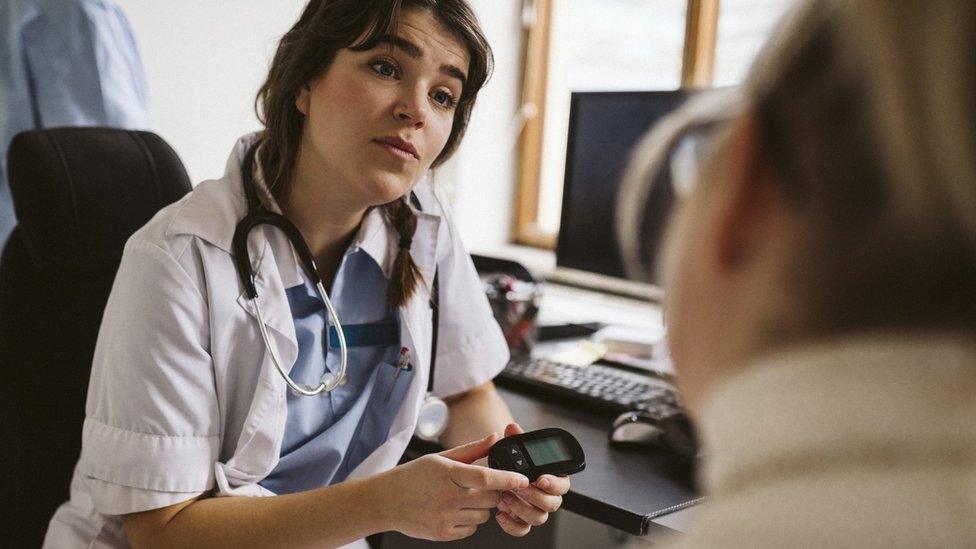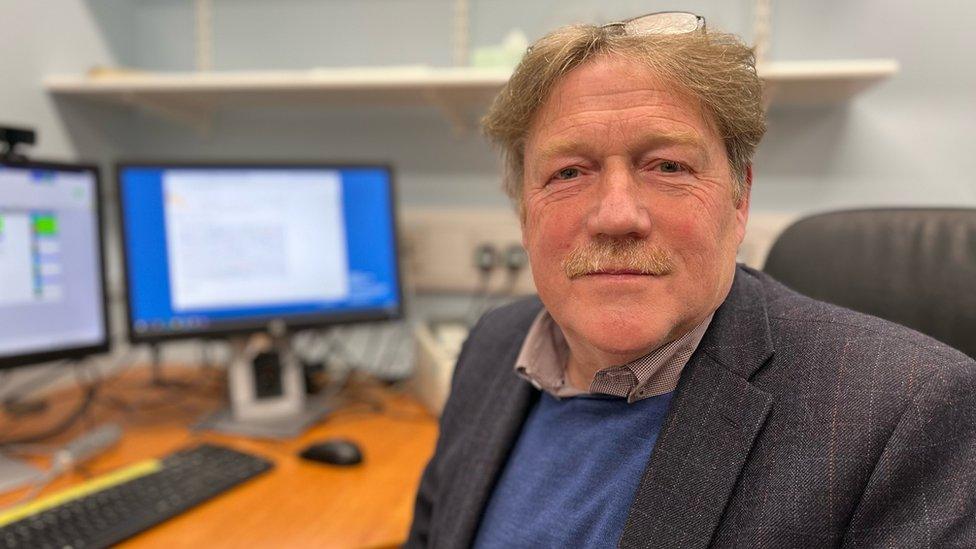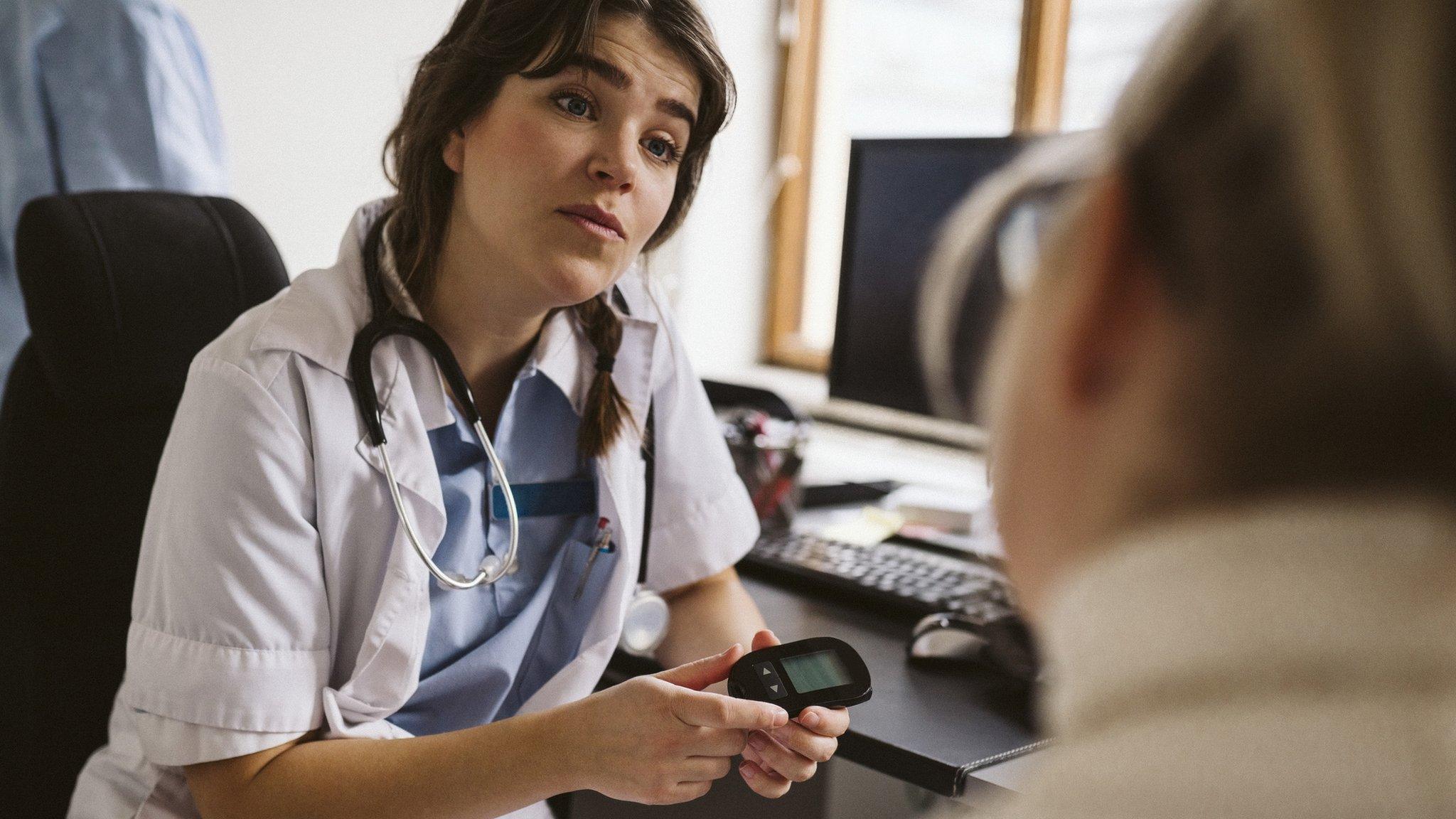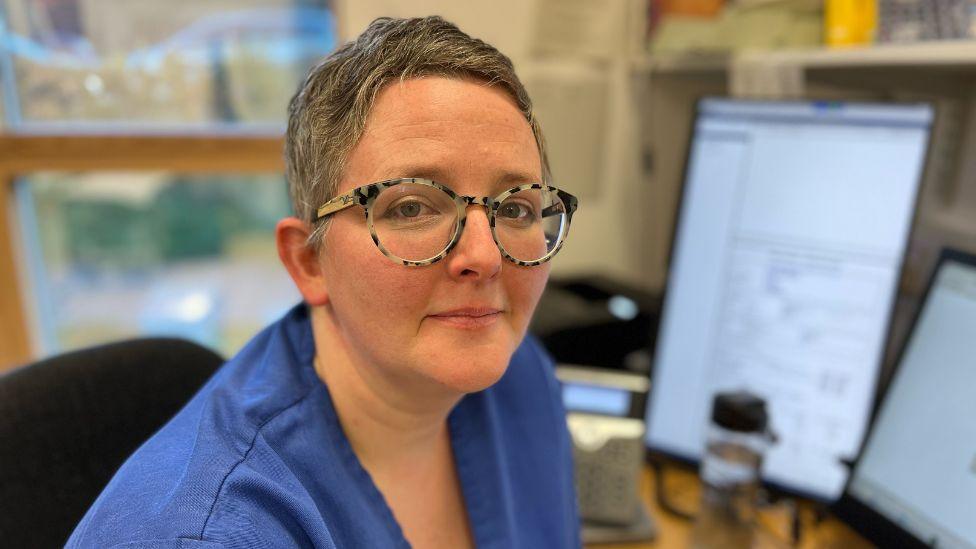Scottish GP crisis will get worse, say doctors' leaders
- Published
Dr Andrew Buist told BBC Scotland's The Sunday Show that many surgeries are at risk of collapsing
Scotland's GPs are facing a bleak situation and things are going to get worse, doctors' leaders have warned.
BMA Scotland GP chair Dr Andrew Buist said many GPs fear their practices are not sustainable in the long term.
Dr Buist was speaking after a survey by the doctors' union suggested 85% of those who responded sometimes struggle to cope.
Three-quarters of GPs who replied said the past year had made them more likely to leave the profession altogether.
More than 850 GPs responded to the BMA Scotland GP wellbeing survey.
The results showed just 5% believed their practice was in a sustainable position, with almost a third (30%) saying it was in a precarious position.
The survey suggested 28% said their workload was unmanageable.
"Significantly, our survey suggests this is only going to get worse given the current direction of travel," Dr Buist said.
"The current demanding situation is taking its toll on GP wellbeing.
"Generally GPs are a very robust group of people, but we are just human, and everyone has a limit."
In an interview with BBC Scotland's The Sunday Show, Dr Buist said Scotland would see more "under-doctored areas" and a rise in "healthcare inequalities".
He added: "Patients that can afford it, I expect will increasingly go private for GP care.
"We're used to people going private for hip replacements and knee replacements, but we are starting to see more people going private for general practice."

Figures for 2022 show there were 4,515 fully-qualified GPs in Scotland, down slightly on the 2021 figure
Dr Buist said it was concerning that 85% of those who responded sometimes or regularly struggled to cope - and that work was having a negative impact on their physical or mental wellbeing.
"That is a dreadful statistic," he said.
Dr Buist said that 43% of GPs said their practice could not meet demand and there was no chance of them doing so in the near future.
"All of this suggests a position that is likely to get much worse, with practices collapsing, handing back contracts and patient care suffering as a result," he said.
"Without urgent action, we will see parts of Scotland become seriously under-doctored as many patients will struggle even more than they are right now to get appointments.
"This will lead to deteriorating continuity of care, something patients greatly value, and the potential for the breakdown of primary care in those areas."
Dr Buist called for increased investment in core general practice services to maintain stability and a concerted action on the recruitment of more GPs.
Medical school places
Figures for 2022 show there were 4,515 fully-qualified GPs in Scotland, down slightly on the 2021 figure.
A separate report estimated the "whole time equivalent" number is 3,494, down 3% on the 2021 figure.
It said the reduction in WTE was likely to be the result of an increase in female GPs who were more likely to work part-time.
Meanwhile, the numbers of patients over 65, who need more medical care, has gone up 20% in the past decade.
The Scottish government has previously pledged to increase the number of GPs by 800 by 2027.
It said additional places at medical school would mean more GPs would begin to feed through in the next few years.
The Scottish government said it had delivered a record number of GPs working in Scotland, with more per head than any other country in the UK.
A spokesperson said: " We are making good progress on our commitment to recruit at least 800 new GPs by 2027. Since 2017, Scotland's GP headcount has increased to a record high of 5,209 in 2022.
"To support general practice we currently have 4,731 staff working in Multi-Disciplinary Teams providing services including physiotherapy, pharmacy and phlebotomy."
- Published13 December 2022

- Published29 November 2022

- Published15 November 2022
